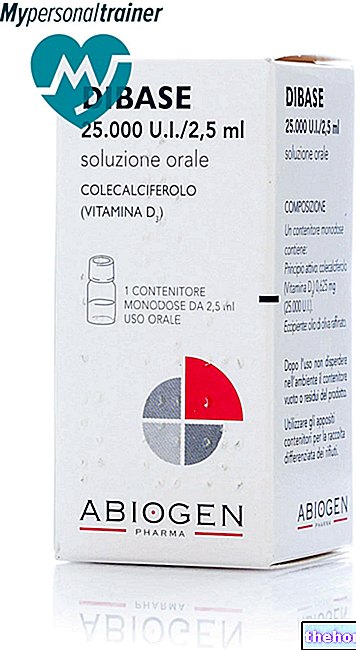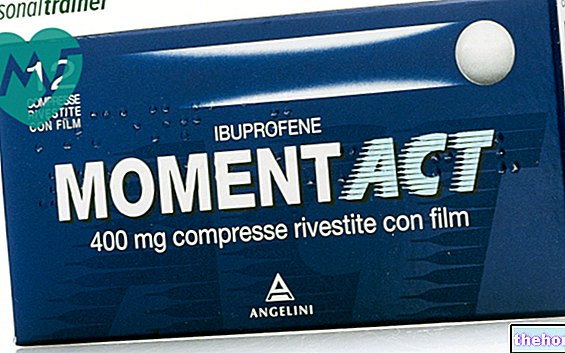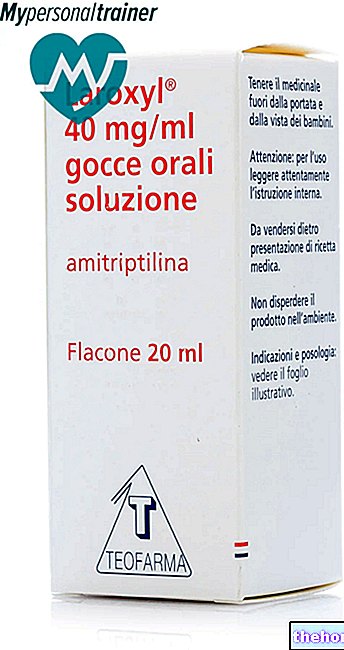Active ingredients: Cyanocobalamin
Dobetin 500 micrograms / ml solution for injection
Dobetin 1000 micrograms / ml solution for injection
Dobetin 5000 micrograms / 2ml solution for injection for intramuscular use
Dobetin package inserts are available for pack sizes: - Dobetin 500 micrograms / ml solution for injection, Dobetin 1000 micrograms / ml solution for injection, Dobetin 5000 micrograms / 2ml solution for injection for intramuscular use
- Dobetin 20 micrograms / ml oral drops, solution
Why is Dobetin used? What is it for?
PHARMACOTHERAPEUTIC CATEGORY
Vitamin (Vitamin B12).
THERAPEUTIC INDICATIONS
Dobetin 500 micrograms / ml and Dobetin 1000 micrograms / ml: Megaloblastic anemia due to vitamin B12 and / or folate deficiency.
Dobetin 5000 micrograms / 2ml: Attack therapy of polyneuritis associated with megaloblastic anemia.
Contraindications When Dobetin should not be used
Hypersensitivity to cobalt, vitamin B12 or to any of the excipients.
Precautions for use What you need to know before taking Dobetin
Administration of high doses of cyanocobalamin parenterally can mask a possible folate deficiency.
Interactions Which drugs or foods can modify the effect of Dobetin
Tell your doctor or pharmacist if you have recently taken any medicines, even those without a prescription.
No negative interactions have been reported with other drugs commonly used in the relevant therapy.
Concomitant use of colchicine and cyanocobalamin may result in decreased absorption of cyanocobalamin.
Concomitant use of chloramphenicol and cyanocobalamin may result in a decreased haematological response.
Concomitant therapy with ascorbic acid may reduce the amount of cyanocobalamin available.
Warnings It is important to know that:
If treatment of megaloblastic anemia is unsuccessful, folate metabolism should be examined.
Indiscriminate administration can mask the real diagnosis. Haematological and neurological status should be monitored regularly to ensure the appropriateness of therapy.
Cardiac arrhythmias secondary to hypokalaemia have been reported during the initial phase of therapy. Therefore blood potassium levels should be monitored at this stage. Platelet counts should be monitored during the first weeks of treatment of megaloblastic anemia due to the possible occurrence of reactive thrombocytosis.
In patients with renal insufficiency and in premature infants, parenteral administration for prolonged periods may increase the risk of aluminum toxicity.
Vitamin B12, especially when administered parenterally, can stain urine red.
Pregnancy and breastfeeding
Ask your doctor or pharmacist for advice before taking any medicine
Although there are no known specific contraindications to the use of Vitamin B12 during pregnancy and breastfeeding, it is recommended to use the product under medical supervision.
Effects on ability to drive and use machines
It does not affect the ability to drive and use machines.
Dosage and method of use How to use Dobetin: Dosage
Dobetin 500 micrograms / ml: 2-4 ampoules (0.5mg / ampoule) per week subcutaneously or intramuscularly.
Dobetin 1000 micrograms / ml: 1-2 ampoules (1mg / ampoule) per week subcutaneously or intramuscularly.
Dobetin 5000 micrograms / 2ml: a single intramuscular vial. Therapy should be continued with the lower dosage, according to the clinical response.
Overdose What to do if you have taken too much Dobetin
No cases of overdose have been reported. In case of accidental ingestion / intake of an overdose of Dobetin, notify your doctor immediately or go to the nearest hospital
IF YOU ARE IN ANY DOUBT ABOUT USING DOBETIN, CONTACT YOUR DOCTOR OR PHARMACIST.
Side Effects What are the side effects of Dobetin
Like all medicines, it can cause side effects, although not everybody gets them.
In the literature, however, the following rare cases have been reported:
Disorders of the blood and lymphatic system:
Reactive thrombocytosis may occur during the first few weeks of treatment for megaloblastic anemia
Immune system disorders:
hypersensitivity reactions including skin reactions (e.g. rash, pruritus) and in exceptional cases anaphylactic shock, angioedema.
Gastrointestinal disorders:
nausea, diarrhea.
General disorders and administration site conditions:
injection site reactions, hyperthermia
Nervous system disorders:
dizziness, headache
Skin and subcutaneous tissue disorders:
bullous and acneiform eruptions.
Compliance with the instructions contained in the package leaflet reduces the risk of undesirable effects
Reporting of side effects
If you get any side effects, talk to your doctor or pharmacist. This includes any possible side effects not listed in this leaflet. Undesirable effects can also be reported directly through the national reporting system at "https://www.aifa.gov.it/content/segnalazioni-reazioni-avverse". By reporting side effects you can help provide more information on the safety of this medicine.
Expiry and Retention
Expiry: see the expiry date printed on the package
WARNING: do not use the medicine after the expiry date shown on the package.
The expiry date indicated refers to the product in intact packaging, correctly stored.
Store below 25 ° C.
Store in the original package to protect the medicine from light.
Keep this medicine out of the sight and reach of children.
Medicines should not be disposed of via wastewater or household waste. Ask your pharmacist how to throw away medicines you no longer use. This will help protect the environment.
COMPOSITION
Dobetin 500 micrograms / ml solution for injection:
each 1 ml vial contains: active ingredient: cyanocobalamima 500 micrograms Excipients: sodium acetate trihydrate; acetic acid; water for injections.
Dobetin 1000 micrograms / ml solution for injection:
each 1 ml vial contains: active ingredient: cyanocobalamin 1000 micrograms Excipients: sodium acetate trihydrate; acetic acid; water for preparations inject
Dobetin 5000 micrograms / 2ml solution for injection for intramuscular use:
each 2 ml ampoule contains: active ingredient: cyanocobalamin 5000 micrograms. Excipients: sodium acetate trihydrate; acetic acid; water for injections
PHARMACEUTICAL FORM AND CONTENT
Dobetin 500 and 1000 micrograms / ml: Solution for injection, box of 5 ampoules of 1 ml
Dobetin 5000 micrograms / 2ml: Solution for injection, box of 5 ampoules of 2ml
Source Package Leaflet: AIFA (Italian Medicines Agency). Content published in January 2016. The information present may not be up-to-date.
To have access to the most up-to-date version, it is advisable to access the AIFA (Italian Medicines Agency) website. Disclaimer and useful information.
01.0 NAME OF THE MEDICINAL PRODUCT
DOBETIN
02.0 QUALITATIVE AND QUANTITATIVE COMPOSITION
Dobetin 500 mcg / ml solution for injection
Each vial contains:
Active principle: 500 mcg of cyanocobalamin
Excipient with known effect: sodium acetate trihydrate.
Dobetin 1000 mcg / ml solution for injection
Each vial contains:
Active principle: 1000 mcg of cyanocobalamin
Excipient with known effect: sodium acetate trihydrate.
Dobetin 5000 mcg / 2ml solution for injection for intramuscular use
Each vial contains:
Active principle: 5000 mcg of cyanocobalamin
Excipient with known effect: sodium acetate trihydrate.
For the full list of excipients, see section 6.1.
03.0 PHARMACEUTICAL FORM
Injectable solution.
Clear red solution.
04.0 CLINICAL INFORMATION
04.1 Therapeutic indications
DOBETIN 500 mcg / ml and DOBETIN 1000 mcg / ml:
megaloblastic anemia due to vitamin B12 and / or folate deficiency.
DOBETIN 5000 mcg / 2ml:
attack therapy of polyneuritis associated with megaloblastic anemia.
04.2 Posology and method of administration
Dosage
DOBETIN 500 mcg / ml: 2-4 ampoules (0.5 mg / ampoule) per week subcutaneously or intramuscularly.
DOBETIN 1000 mcg / ml: 1-2 ampoules (1 mg / ampoule) per week subcutaneously or intramuscularly.
DOBETIN 5000 mcg / 2 ml: a single intramuscular vial. Therapy should be continued with the lower dosage, according to the clinical response.
04.3 Contraindications
Hypersensitivity to cobalt, vitamin B12 or to any of the excipients listed in section 6.1.
04.4 Special warnings and appropriate precautions for use
Administration of high doses of cyanocobalamin parenterally can mask a possible folate deficiency. If treatment of megaloblastic anemia is unsuccessful, folate metabolism should be examined. Indiscriminate administration may mask the actual diagnosis.
Haematological and neurological status should be monitored regularly to ensure the appropriateness of therapy.
Cardiac arrhythmias secondary to hypokalaemia have been reported during the initial phase of therapy. Therefore blood potassium levels should be monitored at this stage.
Platelet counts should be monitored during the first weeks of treatment of megaloblastic anemia due to the possible occurrence of reactive thrombocytosis.
In patients with renal insufficiency and in premature infants, parenteral administration for prolonged periods may increase the risk of aluminum toxicity.
Vitamin B12, especially when administered parenterally, can stain urine red.
DOBETIN contains sodium acetate trihydrate. This medicinal product contains less than 1 mmol (23 mg) sodium per dose, ie it is essentially "sodium free".
04.5 Interactions with other medicinal products and other forms of interaction
No negative interactions have been reported with other drugs commonly used in the relevant therapy.
Concomitant use of colchicine and cyanocobalamin may result in decreased absorption of cyanocobalamin.
Concomitant use of chloramphenicol and cyanocobalamin may result in a decreased haematological response.
Concomitant therapy with ascorbic acid may reduce the amount of cyanocobalamin available.
04.6 Pregnancy and lactation
Although there are no known specific contraindications to the use of Vitamin B12 during pregnancy and breastfeeding, it is recommended to use DOBETIN under medical supervision.
04.7 Effects on ability to drive and use machines
DOBETIN does not affect the ability to drive or use machines.
04.8 Undesirable effects
DOBETIN is generally well tolerated. However, the undesirable effects listed in the table below have been reported in the literature, organized according to the MedDRA system organ class.
The following frequency scales were used: very common (≥1 / 10); common (≥1 / 100,
(*) of the reactive type, it can occur during the first weeks of treatment of megaloblastic anemia
Reporting of suspected adverse reactions
Reporting of suspected adverse reactions occurring after authorization of the medicinal product is important as it allows continuous monitoring of the benefit / risk balance of the medicinal product. Healthcare professionals are asked to report any suspected adverse reactions via the national reporting system. "address https://www.aifa.gov.it/content/segnalazioni-reazioni-avverse.
04.9 Overdose
No cases of overdose have been reported.
05.0 PHARMACOLOGICAL PROPERTIES
05.1 Pharmacodynamic properties
Pharmacotherapeutic group: Antianemic drugs - Vitamin B12 (cyanocobalamin).
ATC code: B03BA01
Vitamin B12 is essential for the correct maturation of erythrocytes and for the maintenance of the integrity and functionality of the myelin sheath.
Megaloblastic anemia and peripheral neuropathies due to vitamin B12 deficiency are attributable to the role played by vitamin B12 in some metabolic reactions in which it participates as a coenzyme.
Vitamin B12 is the cofactor of methionine synthase which catalyzes the conversion of methyltetrahydrofolate into tetrahydrofolate and of homocysteine into methionine, subsequently transformed into S-adenosylmethionine (SAM). The lack of tetrahydrofolate, necessary for DNA synthesis, leads to an inadequate maturation of the erythrocytes which manifests as megaloblastic anemia, while a reduction in SAM production blocks the synthesis process of phosphatidylcholine, an essential component of myelin sheaths.
Furthermore, the deficiency of vitamin B12 as a co-factor of mitochondrial mutase interferes with the normal formation of myelin sheaths, as it induces an absent or altered biosynthesis of fatty acids which are a structural part of the myelin sheath.
05.2 Pharmacokinetic properties
Following parenteral administration, cyanocobalamin rapidly reaches effective plasma levels, and is completely eliminated in the urine within 24 hours. After oral administration, the gastrointestinal absorption of vitamin B12 occurs actively in the presence of intrinsic factor, and partly by passive diffusion, independently of intrinsic factor.
05.3 Preclinical safety data
In the literature no toxic effects are reported due to cyanocobalamin at the recommended dosage.
06.0 PHARMACEUTICAL INFORMATION
06.1 Excipients
Sodium acetate trihydrate; acetic acid; water for injections.
06.2 Incompatibility
There are no known chemical-physical incompatibilities of cyanocobalamin with other compounds.
06.3 Period of validity
3 years.
06.4 Special precautions for storage
Store below 25 ° C.
Store in the original package to protect the medicine from light.
06.5 Nature of the immediate packaging and contents of the package
DOBETIN 500 mcg / ml and DOBETIN 1000 mcg / ml: cartons of 5 colorless glass vials of 1 ml.
DOBETIN 5000 mcg / 2ml: box of 5 colorless glass vials of 2 ml.
06.6 Instructions for use and handling
Unused medicine and waste derived from this medicine must be disposed of in accordance with local regulations.
07.0 MARKETING AUTHORIZATION HOLDER
Joint Chemical Companies Angelini Francesco - A.C.R.A.F. S.p.A.
Viale Amelia 70, 00181 Rome
08.0 MARKETING AUTHORIZATION NUMBER
DOBETIN 500 mcg / ml solution for injection, 5 ampoules of 1 ml - AIC n. 003785019
DOBETIN 1000 mcg / ml solution for injection, 5 ampoules of 1 ml - AIC n. 003785033
DOBETIN 5000 mcg / 2 ml solution for injection for intramuscular use, 5 ampoules of 2 ml - AIC n. 003785045
09.0 DATE OF FIRST AUTHORIZATION OR RENEWAL OF THE AUTHORIZATION
03.04.1953/01.06.2010
10.0 DATE OF REVISION OF THE TEXT
May 2015




























